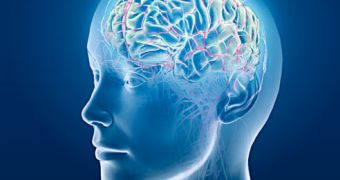Alzheimer's has long been an Achilles' heel for the scientific community. The good news is that, according to a team of Northwestern Medicine researchers, things are finally looking up.
In a paper made available to the public in the June 26 issue of the scientific journal PLOS ONE, the scientists detail on data they collected while testing a new Alzheimer's drug.
EurekAlert explains that this experimental drug is not so much a drug as it is a compound made up of a multitude of drug-like molecules.
These molecules are said to track down and target a specific brain enzyme, whom they force to switch from being over-activated to having reduced levels of activity.
As a result, the enzyme can no longer cause brain inflammation and brain cells damage, both of which are linked to Alzheimer's.
“I'm not aware of any other drug that has this effect on the central nervous system,” study lead author D. Martin Watterson explained.
Laboratory experiments carried out with the help of mice have shown that, when administered before noteworthy memory problems and memory loss begin to manifest, these the drug-like molecules can prevent and even halt the damage that the onset of Alzheimer's is known to foster in the human brain.
“This class of drugs could be beneficial when the nerve cells are just beginning to become impaired,” researcher Linda Van Eldik said.
“The results show the compound prevented the cognitive impairment,” she added.
Presently, the researchers who worked on developing this experimental drug are doing their best to better its formula.
They want to make sure that the drug is metabolically stable before they even consider the possibility of rolling out a clinical trial involving human patients.
Specialists working at the Salk Institute for Biological Studies are also busy developing a drug for Alzheimer's.
They say that their drug slows the progression of the disease and even reverses memory deficits.

 14 DAY TRIAL //
14 DAY TRIAL //